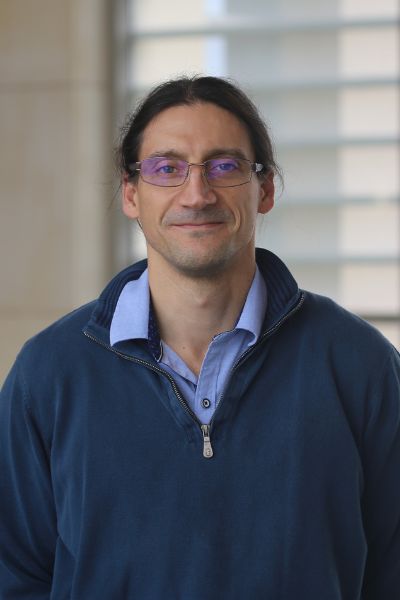 Dr. Paredes-Sabja received a B.Sc. degree from Universidad Austral de Chile and a Ph.D. from Oregon State University (OSU). During his Ph.D. work, he dissected the molecular mechanism of germination of Clostridium perfringens spores. In 2009, he continued his training at OSU as a Postdoctoral Researcher. In this position, he began working on the biology of Clostridioides difficile spores. In 2011, Dr. Paredes-Sabja joined Universidad Andrés Bello, where he expanded his research interests into microbial pathogenesis, pathogen/microbiota-host interactions, bacterial spore physiology, genomic epidemiology and more recently vaccine-development. In 2020, he joined the Department of Biology at Texas A&M University.
Dr. Paredes-Sabja received a B.Sc. degree from Universidad Austral de Chile and a Ph.D. from Oregon State University (OSU). During his Ph.D. work, he dissected the molecular mechanism of germination of Clostridium perfringens spores. In 2009, he continued his training at OSU as a Postdoctoral Researcher. In this position, he began working on the biology of Clostridioides difficile spores. In 2011, Dr. Paredes-Sabja joined Universidad Andrés Bello, where he expanded his research interests into microbial pathogenesis, pathogen/microbiota-host interactions, bacterial spore physiology, genomic epidemiology and more recently vaccine-development. In 2020, he joined the Department of Biology at Texas A&M University.
 Who is your role model, and why?
Who is your role model, and why?
During my entire career, I have had many role models that inspired me in different aspect of my scientific formation. These have always been scientists with great achievements. In most cases I thoroughly have read their entire publication portfolio to learn how they think and envision their particular field.
What is the best advice you’ve been given?
Enjoy and feel passion towards your work… it was my dad´s legacy. He was a passionate scientist in forest economy.
What is one thing people would be surprised to know about you?
I love to go off road and enjoy cruising the landscape.
What advice would you give to a new graduate student?
Enjoy the ride. Graduate school is the best time ever, it’s a big commitment to focus on a specific topic for 5 years… but its lot´s of fun!
What strategies did you use to be successful as a graduate student?
My first habit was to arrive early to the lab… typically by 8-8:30 AM I was already doing my experiments; I also did (and enjoyed) intensive reading of literature associated to my research… this helped me learn new experimental strategies and to criticize my own work; and most importantly was to work focused towards my research aims which I learned to visualize as manuscripts. Altogether, these strategies made me enjoy fully my graduate stage.
 What got you so interested in microbiology to make it your life’s work?
What got you so interested in microbiology to make it your life’s work?
I remember that I entered the PhD in Food Science at Oregon State University. Initially, I temporarily joined Dr. Mahfuzur Sarker´s Lab in the Department of Microbiology to learn about Clostridium perfringens, so that I could produce C. perfringens spores which I would then use in combinatorial experiments in the Food Science Department. However, during that initial stage, when attending the Microbiology Journal Club and Research Seminars at the Microbiology Department, I became fascinated with the precision and depth with which biological questions where being asked. This was a groundbreaking moment for me, driven by my curiosity, I quickly realized that I wanted to shift my PhD research focus towards molecular microbiology. Happily, Mahfuz accepted guiding me into this new research area.
Give us 5 adjectives that describe you as a scientist.
Hard worker, perseverance, passion, rigorous, curiosity driven
